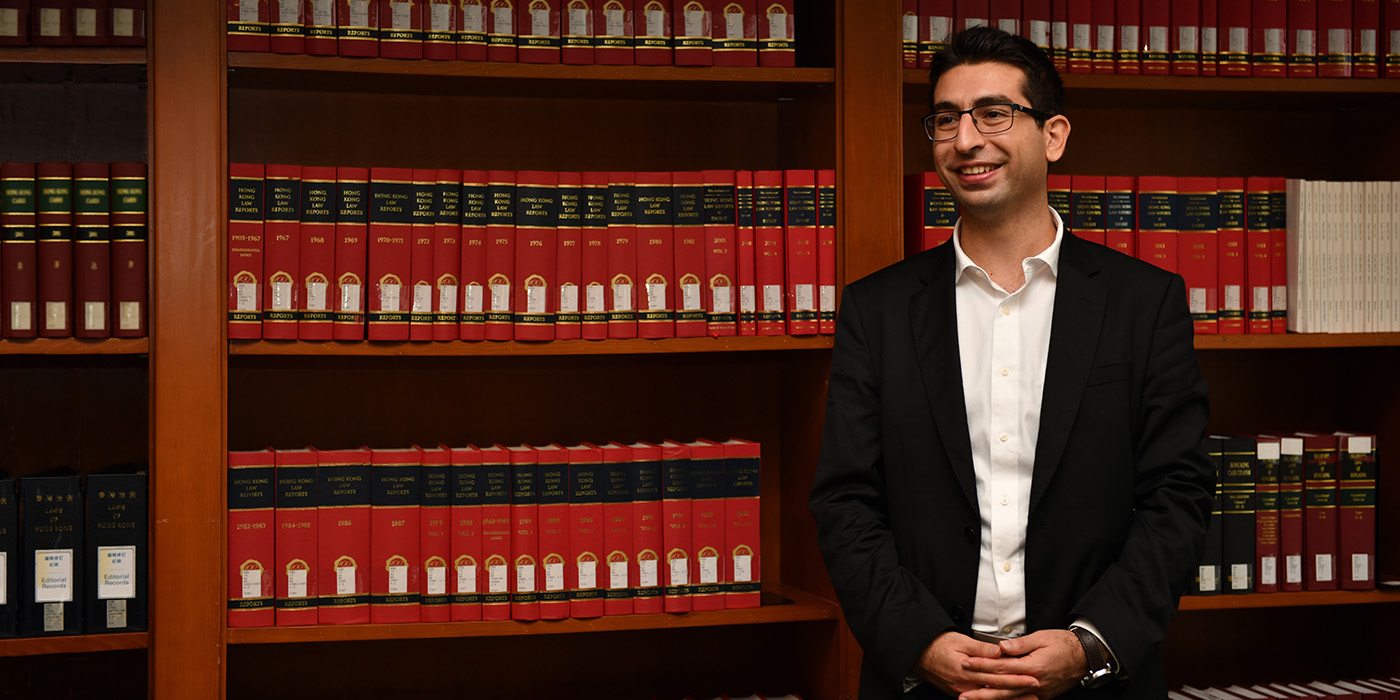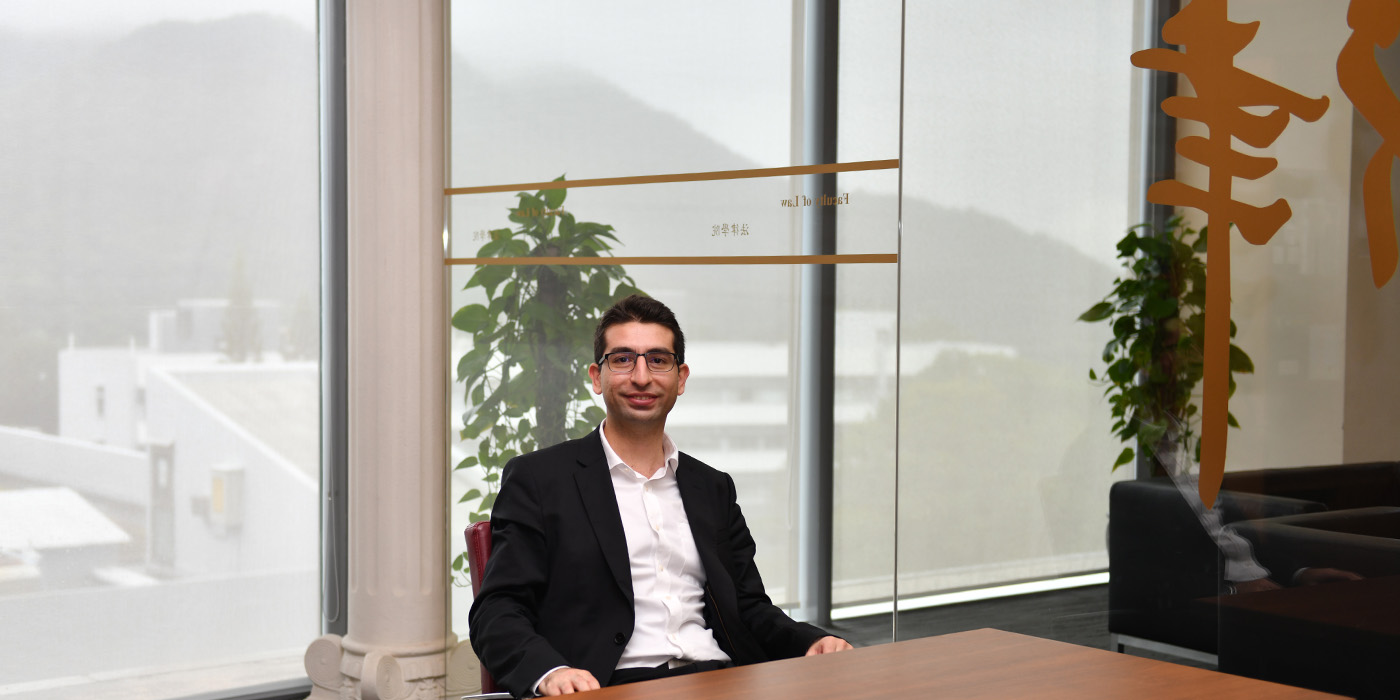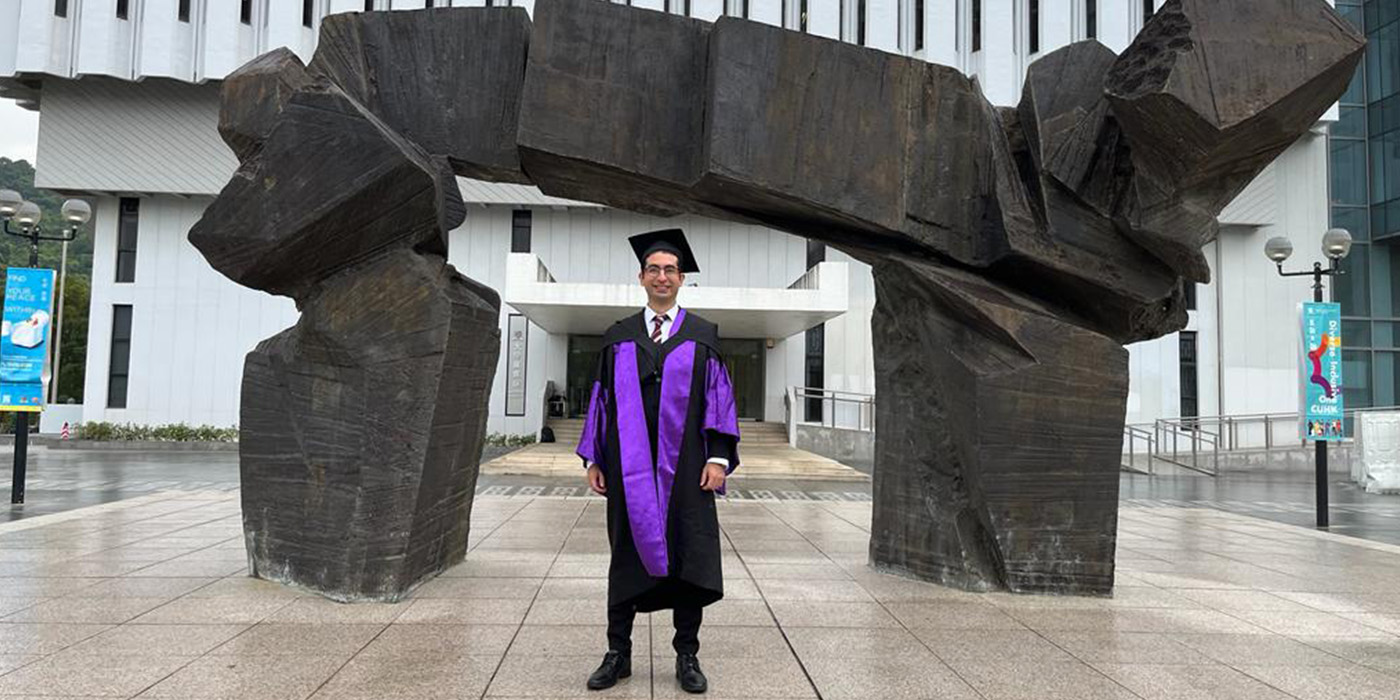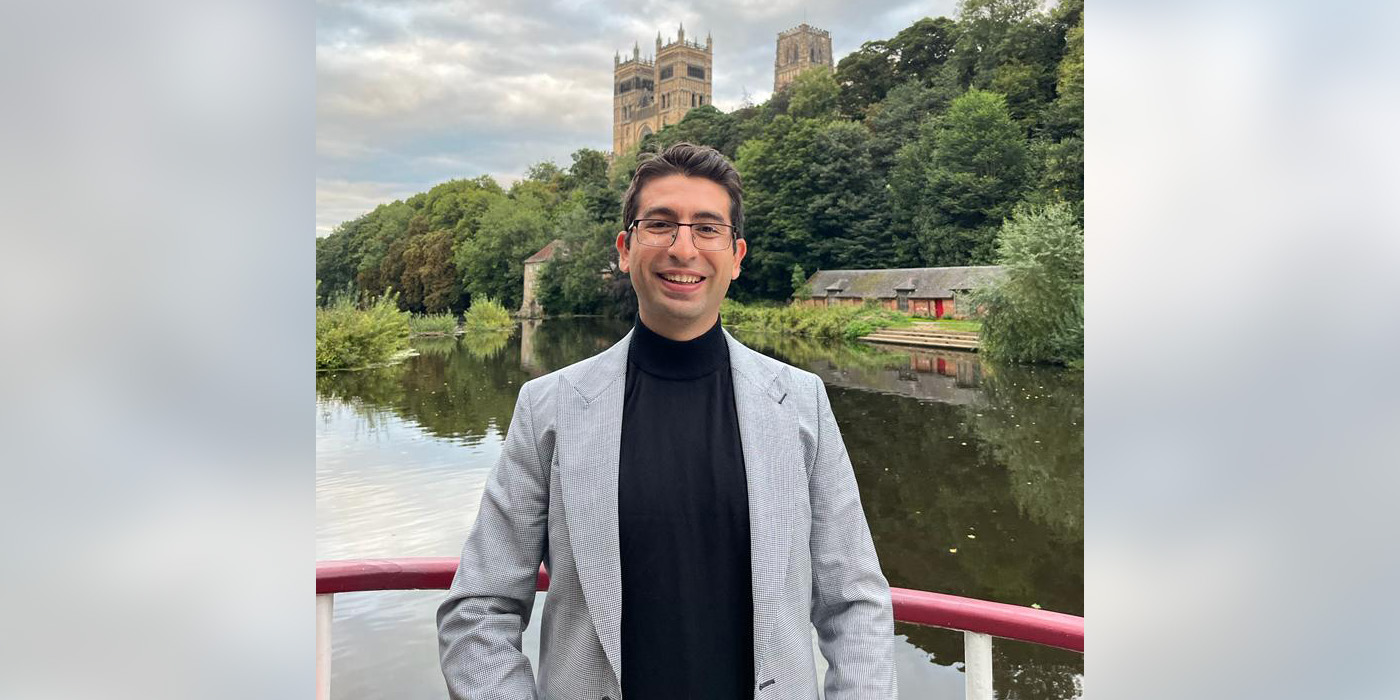Postgraduate Student Life @ CUHK
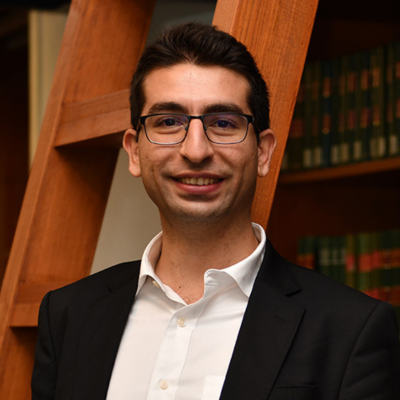
Can EKEN
from Turkey
PhD in Laws
Assistant Professor, Durham University
Assistant Professor, Durham University


The World at His Feet
Globe-trotting alumnus revisits his CUHK roots
Can Eken has been all around the world: Istanbul, Oxford, Stanford, Uzbekistan. Yet the assistant law professor still declares a special affinity for Hong Kong and CUHK: when he first arrived on campus in the summer of 2017, he found himself immediately won over by both the city and the University: “Even though the weather was horribly hot, the people were super nice, and the campus was amazing — I really enjoyed this nice view, and everything!”
Originally just in town for a one-week workshop, Can’s relationship with Hong Kong came to encompass four whole years. Despite the many restrictions of the COVID pandemic, the PhD law graduate, who specialises in arbitration and has been admitted to practice in California, Turkey, England and Wales, found himself able to build a global network of valuable contacts.
Currently teaching at Durham University in the UK, he returned to CUHK in December 2022 for the postgraduate congregation. It gave CUHK in Focus the opportunity to catch up with this alumnus, whose studies and practice — like his homeland Türkiye — straddle different continents with different legal systems.
The long road to Hong Kong
Can had already experienced university life on various campuses before he first set foot in CUHK. After graduating from Dokuz Eylül University in İzmir, on Türkiye’s Aegean coast, he soon pursued Master’s degrees at his alma mater as well as the London School of Economics (LSE), the latter of which he credits with helping him improve his legal English. It was at LSE that he met Professor Gregory Gordon, of CUHK’s Faculty of Law, who happened to be there to introduce the Faculty’s PhD programme. Intrigued, Can signed on to participate in an upcoming workshop at CUHK which changed the course of his studies.
He never imagined that he would be studying in jurisdictions outside of the US and the UK. But, he says, “I liked the atmosphere and people, and at CUHK Law you can find world-class facilities.” Can was also enamoured with the city, its culture and dynamism, but it was finding a good prospective supervisor in Professor Julien Chaisse, then teaching at CUHK, that sealed the deal. Here was an academic who could help him fulfil his aim to specialise in arbitration. Needing little further persuasion, he enrolled at CUHK as a PhD student, and set foot in Hong Kong — and Asia — for the first time in his life.
A man of words, not letters
Having practiced in Istanbul for a year before embarking on his PhD at CUHK, Can explains that it led to another set of factors behind his decision. “When you practice law, there are more dynamics involved. It is not only pure law, but also human relations coming into play because you need to deal with clients and other parties… I enjoy it, but I also like academia.”
This advocacy was something he did not often get a chance to do in his native country. Unlike Hong Kong, with its case-law based common law system, Türkiye practises a civil law system governed mainly through codified statutes and ordinances. He suggests that in such a system, paperwork and written arguments inevitably dominate, and there is little room for Hollywood-style cross-examination. “Written submissions are more important, and in trials you just generally repeat what you have written in your memorandums.” This kind of predictability may sound like a relief to some, but not for Can. He likes to interact more with people, and prefers the oral advocacy integral to the common law system, finding that it makes his role of making a client’s case much more interesting. On top of that, there is an element of multiculturalism: “You travel more, you meet clients from different parts of the world, so it is really more interesting for me”.
Another key reason Can claims to be behind his choice to study at CUHK is Hong Kong’s status as one of the world’s most important international arbitration centres. Traditional seats like London, Geneva or New York play a similar role, but for Can, Hong Kong’s position in the heart of Asia meant he could build up a network of people to work with while also studying. He credits these individuals with pushing him to work ever harder, and he has nothing but effusive praise for the people who gave him the discipline to pass two bar exams and publish four articles in addition to completing his PhD studies.
The best of both worlds
Far from obstructing Can’s global outreach and career development, the limitations imposed by the pandemic has instead proved to be a boon. “During my PhD, I did interviews with third-party funders,” he says. He thinks that the restrictions on gatherings led to Zoom meetings becoming “the new normal”, making people less formal and guarded. “I could reach out more easily to many funders around the world!”
Now teaching commercial law at Durham University, Can credits friendly, helpful colleagues with enriching this newest academic phase of his career. His “brilliant” students, likewise, constantly give him fresh perspectives on the world of law. But while contented with academia, he retains his passion for meeting people as well as the art of courtroom advocacy. He also hopes one day to make further use of the arbitration skills he gained during his years at CUHK. “I love academia and will always stay an academic, but I always want to keep my practice of law on the side as well”. And so his network continues to grow — with him at the centre, ever curious, ever personable.
(Originally published in CUHK in Focus. The article was republished with permission from the Communications and Public Relations Office of CUHK.)

